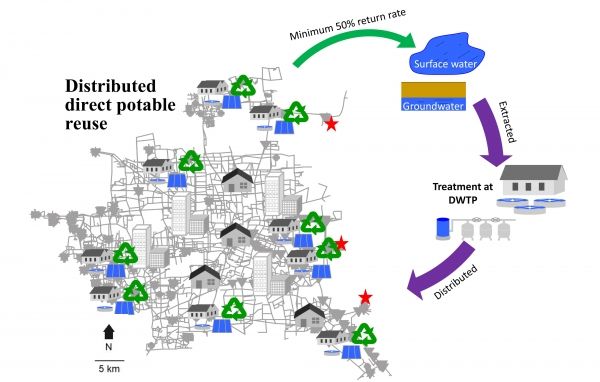Delivering water to city dwellers can become far more efficient, according to Rice University researchers who say it should involve a healthy level of recycled wastewater.
Using Houston as a model, researchers at Rice’s Brown School of Engineering have developed a plan that could reduce the need for surface water (from rivers, reservoirs or wells) by 28% by recycling wastewater to make it drinkable once again.
While the cost of energy needed for future advanced purification systems would be significant, they say the savings realized by supplementing fresh water shipped from a distance with the “direct potable reuse” of municipal wastewater would more than make up for the expense.
And the water would be better to boot.
A comprehensive model of the environmental and economic impact and benefits of such a system was developed by Rice researchers associated with the National Science Foundation-backed Nanosystems Engineering Research Center for Nanotechnology-Enabled Water Treatment (NEWT).
Read more at Rice University
Image: A schematic representation of the hybrid water supply system developed by engineers at Rice University. The researchers suggest that delivering water to city dwellers can become far more efficient, and that it should involve a healthy level of recycled wastewater. CREDIT: Lu Liu


